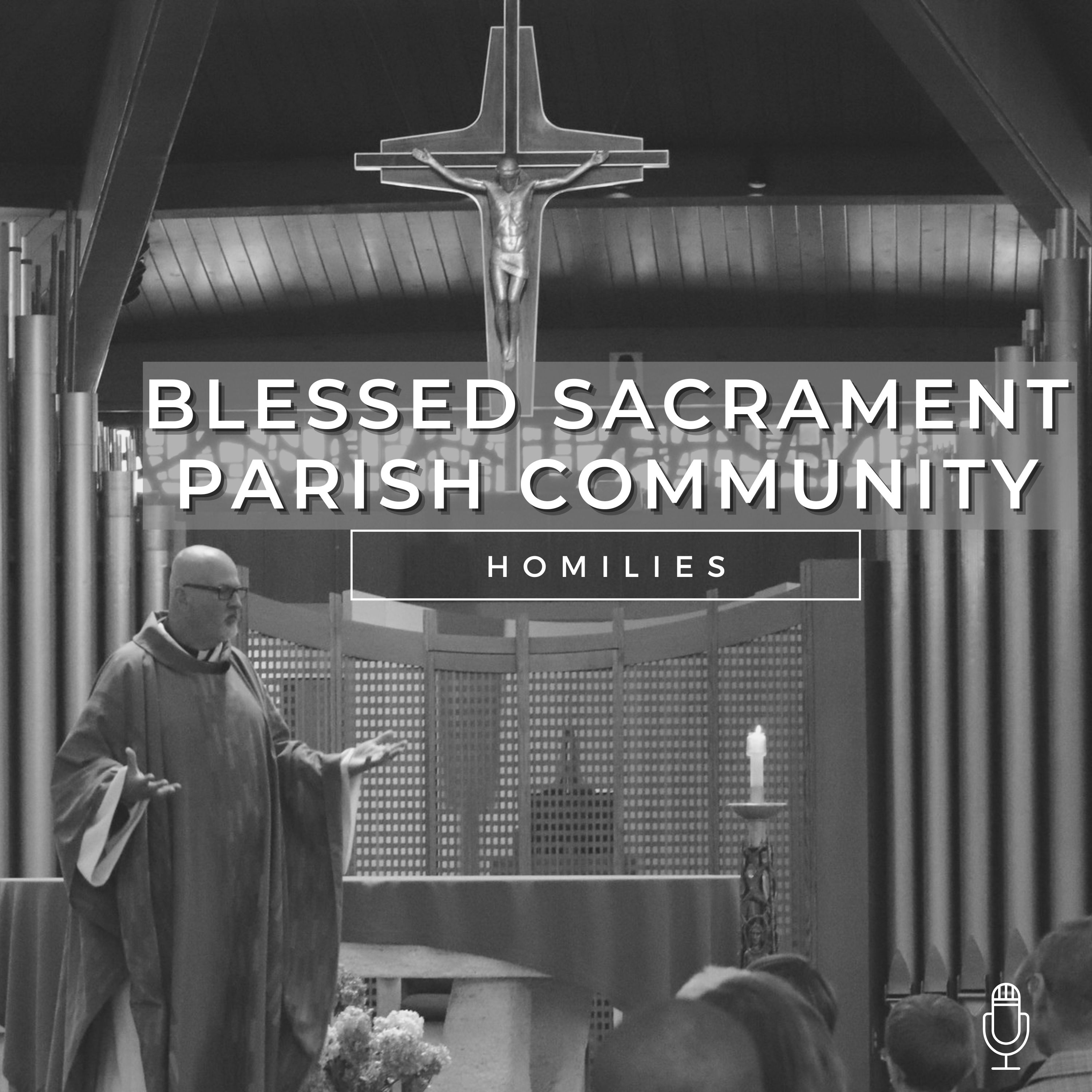Episode Transcript
[00:00:12] Speaker A: Welcome to the Blessed Sacrament Homilies podcast, where our mission is to help everyone recognize and experience the presence of God. We hope you are nourished and encouraged by the word. Thank you for joining us.
[00:00:26] Speaker B: The Lord be with you.
A reading from the holy gospel according to Mark. Glory to you, Lord Jesus said to the crowds, this is how it is with the kingdom of God.
It is as if a man were to scatter seed on the land, and would sleep and rise night and day, and through it all the seed would sprout and grow.
He knows not how of its own accord, the land yields fruit. First the blade, then the ear, then the full grain in the ear.
And when the grain is ripe, he wields the sickle at once. For the harvest has come.
He said, to what shall we compare the kingdom of God?
Or what parable can we use for it? It is like a mustard seed that when it is sown in the ground, is the smallest of all the seeds on the earth.
But once it is grown, it springs up and becomes the largest of plants and puts forth large branches so that the birds of the sky can dwell in its shade.
With many such parables, he spoke the word to them as they were able to understand it without parables. He did not speak to them, but to his own disciples. He explained everything in private, the gospel of the Lord. Praise to you, lord.
There aren't many advantages to living as a celibate, but one of them is you can observe how families interact and be critical, knowing that you don't have to do the work yourself.
And one of the observations I have seen over and over again, and if you disagree with it, just let me be wrong.
But it's that there's a particular age, and I've tried to narrow it down. It's somewhere between probably two and a half and four and a half, where children start to see their parents as simply an agent to give them what they want.
I'm hungry. Give me something to eat. I'm thirsty. Give me something to drink.
I see a toy on the shelf, buy it for me.
And if you've ever run into that, particularly at a place like Meijer, you notice it happens because every once in a while, because they're busy, a parent makes that fatal error on their way to go, between maybe buying toothpaste and buying groceries, where they roll the cart with their children through the toy area, and all of a sudden they become fixated on the toy. Mama, buy this for me. Daddy, buy it for me. And every once in a while they yield to the pressure and buy it.
And then every once in a while, there's tears and yelling, which would have been my experience as a child.
But we can all people of faith have a tendency to be that way with God.
We start to see God as the one that can give us what we need. So we spend our time asking for things.
Lord, do this for me. Get this for me. Help me through this event in my life. I need something. Take care of me.
And while that's okay to do those things, I don't think that's where our faith can stop, particularly our prayer.
And I think we could also probably eliminate most of it, because I firmly believe that God already loves us more than we love ourselves. So we don't really have to ask for things. God already knows we need them, and it's going to give us what we need, but that's what we do. So what's a better way to be?
I think it's working for the kingdom of God and discerning whatever it is God wants of each one of us to bring the kingdom just a little bit closer than it was before we got involved.
And this scripture gives us some insight into what that's about.
Because the mustard seed that Jesus refers to, that mustard seed is you and I.
Jesus says it's the smallest of seeds, but it does amazing things when it's allowed to grow and blossom.
And I think most of us can feel like we're the mustard seed. There's absolutely nothing I can do that's going to change anything. I don't have the power. I don't have the gifts. I can't do anything.
But it's not true.
It's only true if we try to act simply on our own without God's help.
But if we allow the presence of Christ that we believe is already a part of who we are, and if we look to God's guidance and strength, then we can become that greatest of plants that the scripture refers to. We can change the world.
So that's where I think most of the time we ought to spend our faith in our prayer, asking God to give us whatever is we need to do to make sure we do our part to bring the kingdom just a little closer to its fullness. Each one of us has that amazing potential, and we simply have to lean on God's direction to make it happen.


